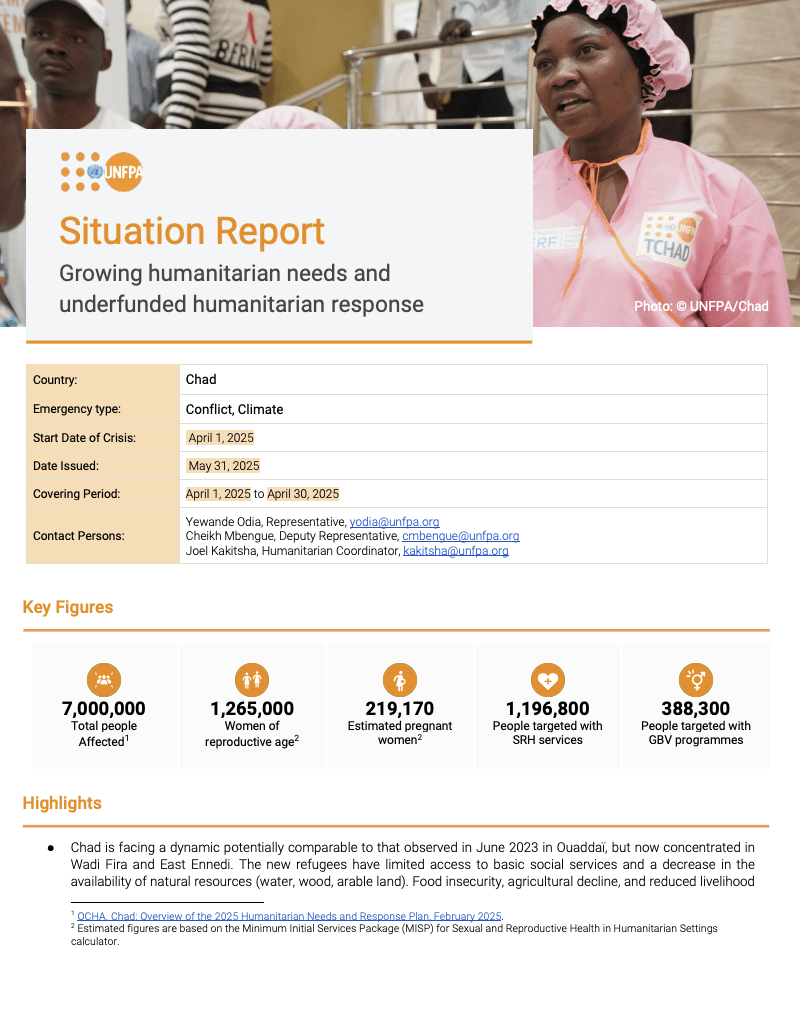
The humanitarian situation in Chad remains critical, driven by escalating displacement, conflict, and climate-induced crises. Eastern Chad is severely impacted by the ongoing conflict in Sudan, with over 726,000 displaced persons recorded by late April 2025. This crisis has heightened vulnerabilities, particularly among women and girls, leading to increased risks of sexual exploitation, abuse, and gender-based violence (GBV). In Lake Chad province, intensified attacks by armed groups and severe flooding have displaced over 268,000 people, severely restricting access to basic services and increasing humanitarian needs. Additionally, the cessation of US funding significantly hampers UNFPA’s capacity to sustain lifesaving reproductive health and GBV services.
UNFPA continues to respond by providing comprehensive sexual and reproductive health (SRH) services, supporting over 34,987 individuals in April alone, 95 per cent of whom were women. Key activities included antenatal consultations, safe deliveries, family planning services, and management of obstetric complications. GBV interventions reached 27,858 individuals, 97 per cent of whom were female, through awareness raising, psychological support, and distribution of humanitarian cash assistance. UNFPA also deployed humanitarian midwives and distributed critical supplies such as reproductive health kits, dignity kits, and cash assistance to survivors, reinforcing the protection and resilience of affected communities.
Despite these efforts, the humanitarian response remains severely underfunded. UNFPA requires approximately US$27 million for its critical interventions in Chad in 2025, yet as of April, only around US$916,705 — less than 4 per cent — has been secured. The severe funding shortfall threatens the continuation of essential SRH and GBV services, posing severe risks to the health, dignity, and safety of women and girls across Chad. Immediate and increased donor support is urgently required to sustain and expand these vital humanitarian interventions.

